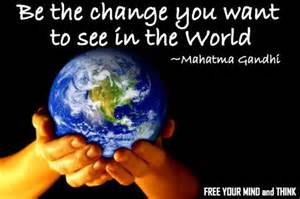 This week, we were ask to explore careers within International agencies. While all of the agencies I explored were international, some of the careers that sparked an interest were located within the United States. As an early childhood professional, the passion that I have for families and children is deep and I know that the knowledge and skillset that I have gained will be beneficial.
This week, we were ask to explore careers within International agencies. While all of the agencies I explored were international, some of the careers that sparked an interest were located within the United States. As an early childhood professional, the passion that I have for families and children is deep and I know that the knowledge and skillset that I have gained will be beneficial.
The International Step by Step Association (ISSA) is a membership association that connects professionals and organizations from close to 40 countries – primarily in Central/Eastern Europe and Central Asia – working in the field of early childhood development and education.
THE POSITION
Communications Officer
Location: ISSA’s office in Leiden/The Netherlands
KEY RESPONSIBILITIES
Responsible for the public relations aspect within an organization. Builds and sustains a company’s reputation for quality, reliability, and customer satisfaction. Writes and delivers press releases and handles all communication sent to the public. Must be capable of dealing with high workloads. Must be a strong team player with a proven interpersonal skills and the ability to work in a multi-cultural environment. Possess the ability to work independently and have a strong commitment to ISSA’s values. Degree required in communications or other related field.
I enjoy interacting with others and I believe that as a communications officer, I will have the ability to educate others and provide support in a positive manner to within an agency that holds the best interest of ECE. This position would allow me to be an effect social change agent.
http://www.issa.nl/
Save the Children
THE POSITION
PROGRAM SPECIALIST EARLY CHILDHOOD
Location: Flagstaff, AZ
KEY RESPONSIBIITIES
The Program Specialist is the on-the-ground Save the Children staff member providing training, technical assistance, and management support to program partners to ensure quality program implementation and results for children. Early Childhood Program Specialists focus on prenatal through age five. Under the supervision of the Deputy Program Director and working as a member of the state team and in collaboration with the national program team, the Program Specialist oversees and supports program implementation, monitoring, and evaluation at assigned partner sites. Specific duties and responsibilities are outlined below. Bachelor’s degree in early childhood education, child development or related field with at least three years’ relevant experience in the area of infant/toddler development. A Master’s degree is preferred. Experience as a trainer/mentor/coach.
https://secure.savethechildren.org/site/c.8rKLIXMGIpI4E/b.6115947/k.8D6E/Official_Site.htm
Building support and enhancing lives would be major aspects of this position and those aspects fall in-line with my passion for children and positive change.
THE POSITION
PROJECT MANAGER EARLY CHILDHOOD EDUCATION
Location: REGION XI US-DC-WASHINGTON
FHI 360 is a nonprofit human development organization dedicated to improving lives in lasting ways by advancing integrated, locally driven solutions. Our staff includes experts in Health, Education, Nutrition, Environment, Economic Development, Civil Society, Gender, Youth, Research and Technology; creating a unique mix of capabilities to address today’s interrelated development challenges. FHI 360 serves more than 60 countries, all 50 U.S. states and all U.S. territories.
KEY RESPONSIBILITIES
Bachelor’s Degree or its International Equivalent – Knowledge/Information Services, Communications, Education, Environment, Health, Behavioral, Life/Social Sciences International Development, Human Development or Related Field. Previous managerial experience preferred. Articulate, professional and able to communicate in a clear, positive manner with clients and staff.
http://www.fhi360.org/
Working for a non-profit agency is very beneficial. I this position as a project manager, I will have the opportunity to showcase the talents I have gained at Walden University. Additionally, it will give me the opportunity to make a difference in the lives of so many families.
References
Family Health International. (2013). Retrieved from http://www.fhi360.org/
International Step By Step Association. (n.d.). Retrieved November 28, 2011, from http://www.issa.nl/index.html
Save the Children. (2011). Retrieved from http://www.savethechildren.org/site/c.8rKLIXMGIpI4E/b.6115947/k.8D6E/Official_Site.htm



